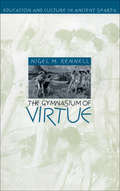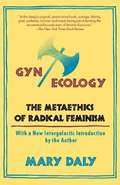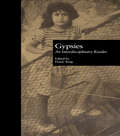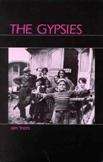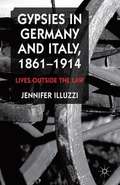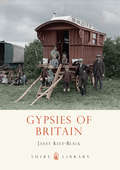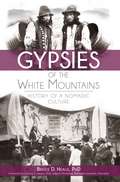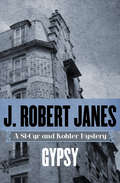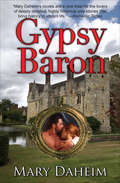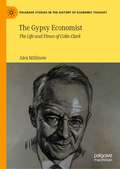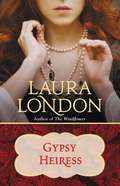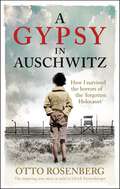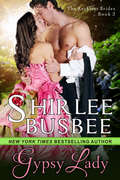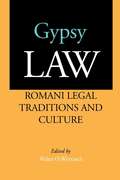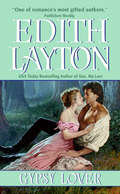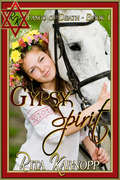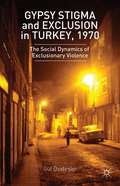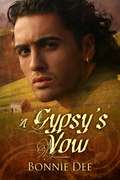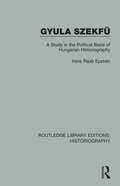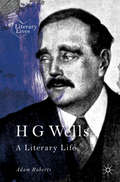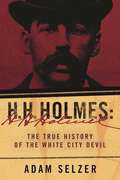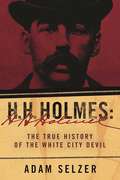- Table View
- List View
The Gymnasium of Virtue
by Nigel M. KennellThe Gymnasium of Virtue is the first book devoted exclusively to the study of education in ancient Sparta, covering the period from the sixth century B.C. to the fourth century A.D. Nigel Kennell refutes the popular notion that classical Spartan education was a conservative amalgam of "primitive" customs not found elsewhere in Greece. He argues instead that later political and cultural movements made the system appear to be more distinctive than it actually had been, as a means of asserting Sparta's claim to be a unique society. Using epigraphical, literary, and archaeological evidence, Kennell describes the development of all aspects of Spartan education, including the age-grade system and physical contests that were integral to the system. He shows that Spartan education reached its apogee in the early Roman Empire, when Spartans sought to distinguish themselves from other Greeks. He attributes many of the changes instituted later in the period to one person--the philosopher Sphaerus the Borysthenite, who was an adviser to the revolutionary king Cleomenes III in the third century B.C.
Gyn/Ecology: The Metaethics of Radical Feminism, with a New Intergalactic Introduction
by Mary DalyIn this book Daly argues that men throughout history have sought to oppress women. She moves beyond her previous thoughts on the history of patriarchy to the focus on the actual practices that, in her view, perpetuate patriarchy, which she calls a religion.
Gypsies: An Interdisciplinary Reader
by Diane TongThis book of interdisciplinary readings on Gypsies is sensitive to the Romani point of view and avoids exoticizing or patronizing the Gypsies and their culture. Recurrent themes in the readings include: the historical oppression of the Gypsies including contemporary xenophobia and violence; the nonstatic, heterogeneous nature of Gypsy cultures; the persistence of racist stereotypes; and personal and institutional Gypsy/non-Gypsy relationships. Nearly all of the classic essays updated for this volume tell stories of the persistance of the Roma in the face of savage atrocities and appalling living conditions.
The Gypsies
by Jan Yoors"This book is written as a protest against oblivion, as a cry of love for this race of strangers who have lived among us for centuries and remained apart. Thus it is of the nomads that I sing." (Jan Yoors, from the Introduction) At the age of twelve, Jan Yoors ran away from his privileged Belgian family and home to join a wandering band, a kumpania, of Gypsies. For ten years, he lived as one of them, traveled with them from country to country, shared both their pleasures and their hardships and came to know them as no one, no outsider, ever has. In this firsthand, highly personal account of an extraordinary people, Yoors tells the real story of the Gypsies' customs and their never-ending struggle to survive as free nomads. In a rare publishing event, Jan Yoors' The Gypsies became an instant classic upon its original publication. Yoors vividly describes the texture of daily life: Gypsies as lovers, spouses, parents, healers, and mourners; loyalties and hostilities; moral and ethical beliefs and practices; language and culture; and history and traditions behind their fierce pride. The exultant celebrations, daring frontier crossings, yearly horse fairs, and convoluted business deals are brought to life in this memorable portrait of the most romanticized yet most maligned and least-known people on earth. As one reviewer wrote, "The Gypsies conveys an understanding of Other that transcends stereotypes and analytical flatness.
Gypsies in Germany and Italy, 1861�1914
by Jennifer IlluzziBy the early 20th century, Gypsies in Germany and Italy were pushed outside the national community and subjected to the arbitrary whims of executive authorities. This book offers an account of these exclusionary policies and their links to the rise of nationalism, liberalism, and the modern bureaucratic state.
Gypsies of Britain
by Janet Keet-BlackThis title tells the story of the Romany Gypsies in Britain. Where they came from, how they arrived. It explores their travelling way of life and their traditional occupations, including harvesting, making baskets, dealing in horses, fortune telling and rat catching to royalty. Their impact on traditional museum dancing. It reveals their service as preachers and soldiers and their continuing contribution to life in Britain today.TOC: I: Origins /II: Lifestyle /III: Occupations /IV: Preachers and soldiers /V: Britain's Gypsies Today
Gypsies of the White Mountains: History of a Nomadic Culture
by Bruce D. Heald Cerasel CuteanuThe Gypsy minority has had a rough path throughout history, and by an unusual turn in this road, a number found themselves in the White Mountains of New Hampshire. By and large, their cultural practices and unwillingness to conform to social norms caused European countries to take drastic measures against Gypsies. In many cases, they were deported to the New World. Traveling with county fairs and carnivals, they made their way to the White Mountains, finding a niche for their fortunetelling practices. They became entertainers and made their livings off palm readings, card readings, their musical talents and even gazing into crystal balls. Gypsies have been misjudged and persecuted throughout history, but their romantic traditions and ideals have greatly been overlooked. Historian Bruce Heald delves into the fascinating history of a stereotyped minority and presents the poetry of their wanderings in the White Mountains of New Hampshire.
Gypsy (The St-Cyr and Kohler Mysteries #9)
by J. Robert JanesAn international safecracker steals diamonds destined for the ReichA tip comes in to the Gestapo, warning of an impending burglary at the Paris Ritz. The target is the room of a special attaché to the German Ministry of Production, where a safe contains a cache of diamonds intended for use in arms manufacture. When inspectors Jean-Louis St-Cyr and Hermann Kohler arrive, backed up by a Berlin cop, the safe is intact. But when they turn the dial to inspect its contents, it explodes, leaving the policemen shaken but unharmed, and ruining one of the finest suites in the Ritz. The burglar has already come and gone, leaving the safe rigged with nitroglycerin as a surprise for his pursuers. His codename is Gypsy, and he has deviled the Reich for years. St-Cyr and Kohler will do their best to unmask him, but as they learned long ago, no crime is simple when the victims are servants of the Thousand Year Reich.
Gypsy Baron
by Mary DaheimFrom a beloved mystery author, this much-anticipated return to historical romance in the Scottish Highlands “brings history to vibrant life” (Romantic Times). Handsome and mysterious Stefan Dvorak, also known as Baron Ostrov, is the son of a gypsy and a disgraced Bohemian nobleman. Though educated at Oxford and welcomed by King James’s court, Stefan is a wanderer by nature and not inclined to settle down. But he has never met anyone like the innocent and dazzling Lady Katherine de Vere, who is mourning the death of the man she hoped to marry: Henry, Prince of Wales. Despite their powerful attraction, neither Stefan nor Kat is free. Stefan’s allegiance to his homeland of Bohemia, torn between Catholic and Protestant factions on the brink of war, trumps any notions of domestic bliss. And the king has decreed that Kat must marry the self-righteous Sir Thomas Overbury. But then Sir Thomas dies in the Tower of London, and his enemies cast the blame on Kat. Threatened with imprisonment, she flees first to Heidelberg and then to Prague. Now she must clear her name and try to save the ancestral home that the king has threatened to confiscate.And a dashing gypsy baron may just be the man to help her do it.
The Gypsy Economist: The Life and Times of Colin Clark (Palgrave Studies in the History of Economic Thought)
by Alex MillmowThis book offers the first intellectual biography of the Anglo Australian economist, Colin Clark. Despite taking the economics world by storm with a mercurial ability for statistical analysis, Clark’s work has been largely overlooked in the 30 years since his death. His career was punctuated by a number of firsts. He was the first economist to derive the concept of GNP, the first to broach development economics and to foresee the re-emergence of India and China within the global economy. In 1945, he predicted the rise and persistence of inflation when taxation levels exceeded 25 per cent of GNP. And he was also the first economist to debunk post-war predictions of mass hunger by arguing that rapid population growth engendered economic development. Clark wandered through the fields of applied economics in much the same way as he rambled through the English countryside and the Australian bush. His imaginative wanderings qualify him as the eminent gypsy economist for the 20th century.
Gypsy Heiress
by Laura LondonFor fans of Julie Garwood, Jude Deveraux, Loretta Chase, Johanna Lindsey and Kathleen E. Woodiwiss comes a classic novel of fortune, fate, and fiery passion, from acclaimed author Laura London. A resourceful young gypsy living by her wits, Liza knows what proper-bred Englishmen think about women of her kind. So when she's caught trespassing on the estate of the esteemed Earl of Brockhaven, she expects no mercy. Fortunately for her, the master of the house - the impossibly handsome Lord Alex - finds the lovely Liza to be utterly enchanting, a wild gypsy rose just waiting to be plucked...Alex soon learns that there's more to this girl than meets the eye. No ordinary vagabond, Liza displays a fierce intelligence that sets his heart on fire - and she wears a mysterious medallion that arouses his curiosity. An old family heirloom, it is Liza's only link to a long-lost fortune. But the poor girl can't even think about money - when she would gladly trade it all for one reckless night in Alex's arms.Fall in love with the richly romantic, classic love stories of Laura London, author of The Windflower, as her beloved novels are released in ebook for the first time.
Gypsy Heiress
by Laura LondonFrom the author of the beloved romance classic The Windflower comes a novel of fortune, fate, and fiery passion. Now available in ebook for the first time.A resourceful young gypsy living by her wits, Liza knows what proper-bred Englishmen think about women of her kind. So when she's caught trespassing on the estate of the esteemed Earl of Brockhaven, she expects no mercy. Fortunately for her, the master of the house-the impossibly handsome Lord Stewart-finds the lovely Liza to be utterly enchanting, a wild gypsy rose just waiting to be plucked . . .Stewart soon learns that there's more to this girl than meets the eye. No ordinary vagabond, Liza displays a fierce intelligence that sets his heart on fire-and she wears a mysterious medallion that arouses his curiosity. An old family heirloom, it is Liza's only link to a long-lost fortune. But the poor girl can't even think about money-when she would gladly trade it all for one reckless night in Stewart's arms.(96,000 words)
A Gypsy In Auschwitz: How I Survived the Horrors of the ‘Forgotten Holocaust’
by Otto RosenbergOtto Rosenberg is 9 and living in Berlin, poor but happy, when his family are first detained. All around them, Sinti and Roma families are being torn from their homes by Nazis , leaving behind schools, jobs, friends, and businesses to live in forced encampments outside the city. One by one, families are broken up, adults and children disappear or are 'sent East'.Otto arrives in Auschwitz aged 15 and is later transferred to Buechenwald and Bergen-Belsen. He works, scrounges food whenever he can, witnesses and suffers horrific violence and is driven close to death by illness more than once. Unbelievably, he also joins an armed revolt of prisoners who, facing the SS and certain death, refuse to back down. Somehow, through luck, sheer human will to live, or both, he survives.The stories of Sinti and Roma suffering in Nazi Germany are all too often lost or untold. In this haunting account, Otto shares his story with a remarkable simplicity. Deeply moving, A Gypsy in Auschwitz is the incredible story of how a young Sinti boy miraculously survived the unimaginable darkness of the Holocaust.
A Gypsy In Auschwitz: How I Survived the Horrors of the ‘Forgotten Holocaust’
by Otto RosenbergOtto Rosenberg is 9 and living in Berlin, poor but happy, when his family are first detained. All around them, Sinti and Roma families are being torn from their homes by Nazis , leaving behind schools, jobs, friends, and businesses to live in forced encampments outside the city. One by one, families are broken up, adults and children disappear or are 'sent East'.Otto arrives in Auschwitz aged 15 and is later transferred to Buechenwald and Bergen-Belsen. He works, scrounges food whenever he can, witnesses and suffers horrific violence and is driven close to death by illness more than once. Unbelievably, he also joins an armed revolt of prisoners who, facing the SS and certain death, refuse to back down. Somehow, through luck, sheer human will to live, or both, he survives.The stories of Sinti and Roma suffering in Nazi Germany are all too often lost or untold. In this haunting account, Otto shares his story with a remarkable simplicity. Deeply moving, A Gypsy in Auschwitz is the incredible story of how a young Sinti boy miraculously survived the unimaginable darkness of the Holocaust.
Gypsy Lady (The Reckless Brides #2)
by Shirlee BusbeeFrom Paris to New Orleans, two hearts test the bounds of passion, duty and revenge in Shirlee Busbee’s, Gypsy Lady.—Paris, 1802—While in disguise and dancing in a Gypsy encampment, Lady Catherine Tremayne ignites Jason Savage’s interest and his passion.Believing her a Gypsy, he whisks her away as his own, and when he discovers her true identity, insists they marry.But gaining a wife does not terminate Jason’s dangerous government mission or the revenge he seeks.Yet passion has a way of interfering with Agent Savage’s well-laid plans as Catherine refuses to accept anything less than his whole heart in exchange for the fire burning deep in her Gypsy soul.Publisher Note: Shirlee Busbee's page-turning historical romance transports readers to a world of strong men, vibrant women, heart-stopping plot twists, and breathless passion that is not for the faint of heart.Don't miss these other titles from Shirlee Busbee:THE RECKLESS BRIDES, in series orderThe Spanish RoseGypsy LadyLady VixenTHE RELUCTANT BRIDES, in series orderA Heart for the TakingSwear by MoonlightWhile Passion SleepsTHE SOUTHERN WOMEN, in series orderThe Tiger LilyEach Time We LoveAt Long LastLove a Dark RiderTHE LOUISIANA LADIES, in series orderDeceive Not My HeartMidnight MasqueradeLove Be Mine
Gypsy Law
by Walter O. WeyrauchApproximately one thousand years ago Gypsies, or Roma, left their native India. Today Gypsies can be found in countries throughout the world, their distinct culture still intact in spite of the intense persecution they have endured. This authoritative collection brings together leading Gypsy and non-Gypsy scholars to examine the Romani legal system, an autonomous body of law based on an oral tradition and existing alongside dominant national legal networks. For centuries the Roma have survived by using defensive strategies, especially the absolute exclusion of gadje (non-Gypsies) from their private lives, their values, and information about Romani language and social institutions. Sexuality, gender, and the body are fundamental to Gypsy law, with rules that govern being pure (vujo) or impure (marime). Women play an important role in maintaining legal customs, having the power to sanction and to contaminate, but they are not directly involved in legal proceedings. These essays offer a comparative perspective on Romani legal procedures and identity, including topics such as the United States' criminalization of many aspects of Gypsy law, parallels between Jewish and Gypsy law, and legal distinctions between Romani communities. The contributors raise broad theoretical questions that transcend the specific Gypsy context and offer important insights into understanding oral legal traditions. Together they suggest a theoretical framework for explaining the coexistence of formal and informal law within a single legal system. They also highlight the ethical dilemmas encountered in comparative law research and definitions of "human rights."
Gypsy Lover
by Edith LaytonAs the poor relation to a wealthy family, lovely Meg Shaw is obliged to be a governess companion to their daughter. But when her charge runs away, and Meg's position with the family is threatened, she embarks on a search of her own to find the missing heiress and clear her good name. Little did she expect that her path would cross Daffyd Reynard, a wealthy and dashing gentleman with the wild heart of a gypsy. Though Meg doesn't trust the glib and handsome rogue, and by polite society's rules cannot travel alone with a man, she reluctantly accepts Daffyd's help in her mission. Now all she has to do is find the missing heiress, keep her identity a secret, prevent her reputation from being ruined and fight the temptation of Daffyd's kiss...
Gypsy Spirit (Tango of Death #1)
by Rita KarnoppGypsy Spirit is the story of fifteen year-old Zilka Sucuri, a Gypsy girl who is thrust into the horrors of the Holocaust. Her life of traveling from town to town, singing and dancing the Gypsy way comes to an unconscionable stop when a SS death squad shoot every man, woman, and child in her kumpania. If she had not literally been up a tree, she would have been among those lying dead in a mass grave. Her lungo drom (the long road) takes her across Poland, Austria, and Germany in a driving struggle to help an American pilot return safely to his unit so he can return to bomb the many concentration, work, and death camps all across Poland and Germany. Her efforts reveal the truths of Belzec, the challenges of the partisans, and the burning desire to survive to be a living witness of what truly happened to the non-Aryans of Hitler’s Germany. Gypsy Spirit is a story of the driving spirit of a Gypsy girl, who took it upon herself to document the truth. Her strength and determination brings to light a story of magnanimity and the fears and atrocities such a Gypsy girl might have lived through.
Gypsy Stigma and Exclusion in Turkey, 1970: Social Dynamics of Exclusionary Violence
by Gül ÖzateşlerUsing an oral history approach, this book draws on Gypsy and non-Gypsy narratives to tell the story of Gypsy forced dislocation from Bayramic, a northwestern town of Turkey, in 1970. Gül Özatesler examines memory construction, the categories of Gypsyness and Turkishness, and the different perspectives and positions that emerged, considering all in relation to underlying socioeconomic structure. The book reveals how ethnic and other identities can be deployed to conceal socioeconomic and political inequalities.
Gypsyni Diary
by Narendra Phanseયુદ્ધ એ ‘યુદ્ધ માટેની કળા’ જ છે. બધી જ કળાઓની જેમ યુદ્ધકળામાં પણ વિવિધ પ્રકારના પ્રવાહોનો સમાવેશ થાય છે. તેમાં માનસશાસ્ત્ર, ભૂગોળ, પૃથ્વીનો કુશળતાપૂર્વક ઉપયોગ, આક્રમણ, સંરક્ષણ, શારીરિક અને માનસિક કઠોરતા, ચિંતનશક્તિ, દૂરદર્શિતા, શિસ્ત, હુકમનો આદર, વિવિધ હથિયારોનો અને સરસરંજામોનો ઉપયોગ, ઉપરી તેમજ નીચેના અધિકારીઓ તરફની વફાદારી અને નેતાગીરી (leadership) જેવા પ્રકારો હોય છે. આ બધા પ્રકારના ગુણોની પ્રાપ્તિથી જ સંરક્ષણના ઉમદા અધિકારીનું ઘડતર થાય છે. આ ગુણો દરેક હરોળમાં કાયમી હોય છે. જેમ જેમ વ્યક્તિ અધિકારીની શ્રેણીની નિસરણીમાં પ્રગતિ કરતી જાય છે તેમ તેમ એનામાં પરિપક્વતા આવતી જાય છે.
A Gypsy's Vow
by Bonnie DeeA sensible marriage to a titled land-owner, or run away with the charming stranger who stirs feelings in her she never knew existed? Bess has a difficult decision to make. The wrong choice could destroy her chance for future happiness.A proper, level-headed woman. A handsome, wandering rogue.Sparks fly between them, but does the innkeeper's daughter dare leave behind all that's familiar to run away with a gypsy?After managing her drunken father's inn for most of her adult life, Bess is presented with an offer of marriage from a member of the local gentry. She should be thrilled at the proposed match with a man so far above her station, but knows Lord Wallace is more interested in the income from her successful business than he is in her.One day while shopping in the market, she meets a charming stranger who shakes up her world. She's unprepared for the onslaught of powerful feelings Alexi rouses in her as he woos her with passionate intensity. Now Bess must decide what she truly wants from life and how she chooses to live her future.
Gyula Szekfü: A Study in the Political Basis of Hungarian Historiography (Routledge Library Editions: Historiography)
by Irene Raab EpsteinThis study explores the connection between politics and historical scholarship in the case of the Hungarian historian, Gyula Szekfü, whose career spanned one of the most significant and eventful periods of Hungarian history. His writing is particularly suited for an inquiry into the relationship between politics and historiography becasue the changes in Szefkü’s political and historical points of view parallelled the drastic changes which occurred in Hungary.
H G Wells: A Literary Life (Literary Lives)
by Adam RobertsThis is the first new complete literary biography of H G Wells for thirty years, and the first to encompass his entire career as a writer, from the science fiction of the 1890s through his fiction and non-fiction writing all the way up to his last publication in 1946. Adam Roberts provides a comprehensive reassessment of Wells’ importance as a novelist, short-story writer, a theorist of social prophecy and utopia, journalist and commentator, offering a nuanced portrait of the man who coined the phrases ‘atom bomb’, ‘League of Nations’ ‘the war to end war’ and ‘time machine’, who wrote the world’s first comprehensive global history and invented the idea of the tank. In these twenty-six chapters, Roberts covers the entirety of Wells’ life and discusses every book and short story he produced, delivering a complete vision of this enduring figure.
H. H. Holmes: The True History of the White City Devil
by Adam SelzerAmerica's first and most notorious serial killer and his diabolical killing spree during the 1893 World's Fair in Chicago, now updated with a new afterword discussing Holmes' exhumation on American Ripper.H. H. Holmes: The True History of the White City Devil is the first truly comprehensive book examining the life and career of a murderer who has become one of America’s great supervillains. It reveals not only the true story but how the legend evolved, taking advantage of hundreds of primary sources that have never been examined before, including legal documents, letters, articles, and records that have been buried in archives for more than a century. Though Holmes has become just as famous now as he was in 1895, a deep analysis of contemporary materials makes very clear how much of the story as we know came from reporters who were nowhere near the action, a dangerously unqualified new police chief, and, not least, lies invented by Holmes himself. Selzer has unearthed tons of stunning new data about Holmes, weaving together turn-of-the-century America, the killer’s background, and the wild cast of characters who circulated in and about the famous “castle” building. This book will be the first truly accurate account of what really happened in Holmes’s castle of horror, and now includes an afterword detailing the author's participation in Holmes' exhumation on the TV series, American Ripper. Exhaustively researched and painstakingly brought to life, H. H. Holmes will be an invaluable companion to the upcoming Martin Scorsese and Leonardo DiCaprio movie about Holmes’s murder spree based on Erik Larson’s The Devil in the White City.
H. H. Holmes: The True History of the White City Devil
by Adam SelzerShares with readers America’s first and most infamous serial killer and his diabolical killing spree during the 1893 World’s Fair in ChicagoThe first comprehensive book following the life and career of H. H. HolmesA fascinating true story about a dark moment in Chicago’s historyH. H. Holmes: The True History of the White City Devil uncovers not only the true story of Holmes but also how the legend evolved. It uses hundreds of primary sources that have never been studied before. This includes letters, articles, legal documents, and records that have been tucked away in archives for more than 100 years. While H. H. Holmes is now as famous as he was in 1895, a thorough analysis of modern materials clarifies how much of the story as we know it came from reports who were far from the action, an incredibly unqualified new police chief, and lies from Holmes himself. This book is a tale of an outlaw. It covers Holmes’s own story with new insights. The author, Adam Selzer, has uncovered stunning new data about Holmes. He combines turn-of-the-century America, the crazy group of characters who were in and around the famous “castle” building, and the killer’s own background. This book is the first fully accurate account of what truly happened in Holmes’s horror castle. H. H. Holmes, with its exhaustive research and careful detail, is an irreplaceable partner to the upcoming Leonardo DiCaprio and Martin Scorsese movie about Holmes’s murder spree based on Erik Larson’s The Devil in the White City.
